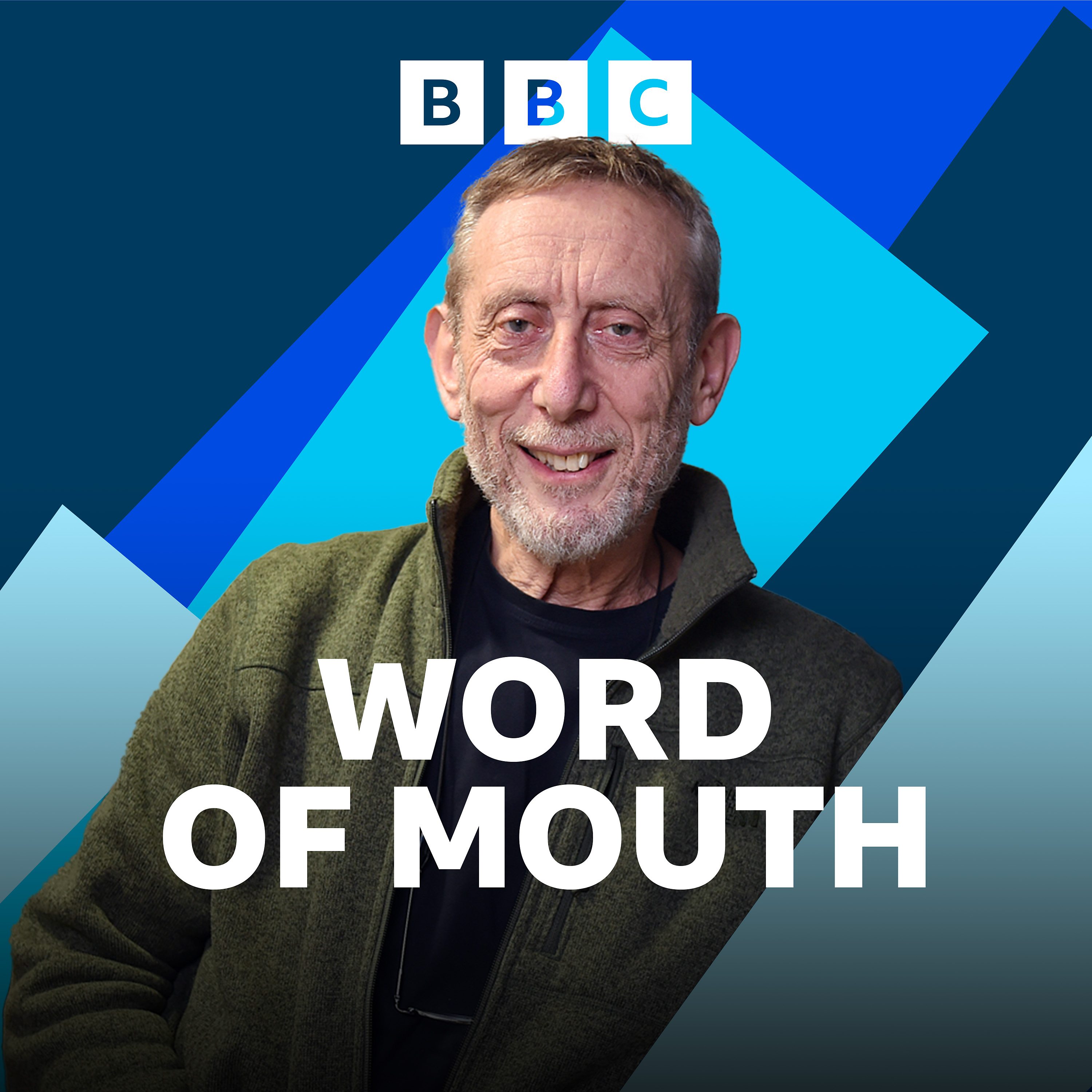

Word of Mouth
BBC Radio 4
Series exploring the world of words and the ways in which we use them
Episodes
Mentioned books

Feb 2, 2022 • 27min
Remembering Mother Tongues
Michael Rosen asks Julie Sedivy about what happens when we lose our first language. Julie Sedivy's family left their home country, the former Czechoslovakia, when Julie was a small child. They arrived in Canada as refugees with no English. Michael and Julie discuss the role of language within Julie's family story: how young children assimilate, how parents adapt and what can learned from these family experiences for the whole of society.Julie Sedivy is a Canadian writer and language scientist, whose book on losing and reclaiming her first language is called Memory Speaks.Producer: Eliza Lomas for BBC Audio, Bristol.

Jan 25, 2022 • 27min
It's language, Jim, but not as we know it
Could aliens 'speak' in chemicals? Could they converse in electricity? Would they be able to hear us? In the absence of a Star Trek-style universal translator, how would you talk to an alien newly arrived on Planet Earth?Dr Hannah Little is a science communicator, linguist and comedian. She joins Michael Rosen for some fascinating thought experiments on extraterrestrial communication and animal interactions closer to home. What might all this tell us about how human language first appeared, and why does it matter? Produced by Sarah Goodman for BBC Audio in Bristol.

Jan 18, 2022 • 28min
When Words Fail Us
Kathryn Mannix, author and palliative care specialist, joins Michael Rosen to think about those discussions we would rather avoid. She calls them "tender" conversations. In the moments that really count, how do we respond to someone sharing bad news or raw emotion? How do we listen well? What do we say – and what should we not say?Kathryn and Michael talk about why we tell stories to help us process important moments and how silence is often the most caring response to someone in distress. They also talk about having conversations aloud or in our heads with loved ones who have died and how this can help us work through loss.Kathryn Mannix is the author of Listen: How to Find the Words for Tender Conversations and With the End in Mind: How to Live and Die Well.Produced by Sarah Goodman for BBC Audio in Bristol.

Jan 11, 2022 • 28min
Words from World War I
Doing your bit or shirking? Afflicted with ‘Belgian flush’? Don’t forget to BYOB.Lynda Mugglestone, Professor of the History of English at the University of Oxford, joins Michael Rosen to talk about the new language that emerged from British experience in the First World War – from Zeppelinophobia on the Home Front to ‘watching the pyrotechnics’ in the trenches. Jumping into an extraordinary archive put together by clergyman Andrew Clark at the time, they discover just how many words and phrases were coined to describe this brand new kind of warfare, and what they mean to us today.Professor Lynda Mugglestone is the author of Writing a War of Words: Andrew Clark and the Search for Meaning in World War One.Produced by Sarah Goodman for BBC Audio in Bristol.

Aug 24, 2021 • 28min
Digital body language: how to work online
Michael Rosen gets advice from Erica Dhawan on the best ways to communicate on-screen, as people work and live more in zoom, text, social media and email rather than meeting up. We need to find new ways of talking to each other 'virtually'.
Erica Dhawan is the author of Digital Body Language: How to Build Trust and Connection, No Matter the Distance.
Produced by Beth O'Dea for BBC Audio in Bristol.

Aug 17, 2021 • 28min
When people get your name wrong
Michael Rosen on why personal names are so often mispronounced or misspelled, in conversation and online. With guest Dhruti Shah, linguist Dr Laurel MacKenzie, and lots of stories from the Word of Mouth audience.
Produced by Beth O'Dea for BBC Audio in Bristol

Aug 10, 2021 • 27min
Accent Bias
Michael Rosen asks Professor Devyani Sharma about the latest research into accent bias in the UK. Which are the highest and lowest rated accents, and why does it matter so much?
Produced by Beth O'Dea for BBC Audio in Bristol
More information on the work of the Accent Bias Britain project:
https://accentbiasbritain.org/

Aug 3, 2021 • 27min
Cultish Language
Michael Rosen and Amanda Montell talk about the language used by cults that has permeated other, and more unexpected, areas of life.Produced by Beth O'Dea for BBC Audio in Bristol.

Jul 27, 2021 • 28min
Medical English
Michael Rosen asks Dr Sophie Harrison about the strange and special new language she had to learn to become a doctor, having been an editor at Granta Magazine. She's written a book about her language journey: The Cure For Good Intentions: A Doctor's Story.
Produced by Beth O'Dea for BBC Audio in Bristol

Jul 20, 2021 • 28min
The Art of Inventing Languages
How does one go about inventing a language? David J. Peterson is the creator of the Dothraki and Valyrian languages for fantasy series Game of Thrones, as well as many others. He joins Michael Rosen for a playful discussion about all things conlang, and Michael tries his luck at inventing a new language for bacteria. Produced by Eliza Lomas for BBC Audio in Bristol.


